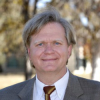Brian Schmidt

Brian Schmidt
Brian Paul Schmidt AC, FRS, FAAis the Vice-Chancellor of the Australian National University. He was previously a Distinguished Professor, Australian Research Council Laureate Fellow and astrophysicist at the University's Mount Stromlo Observatory and Research School of Astronomy and Astrophysics and he is known for his research in using supernovae as cosmological probes. He currently holds an Australia Research Council Federation Fellowship and was elected a Fellow of the Royal Societyin 2012. Schmidt shared both the 2006 Shaw Prize in Astronomy...
NationalityAustralian
ProfessionScientist
Date of Birth24 February 1967
CountryAustralia
The reality is that I'm making better wine than I thought I would. The whole process is simple but beautiful.
These results are remarkable. Based on this success, we will continue to use Cohorts to tailor our messages and creative to specific target markets.
Beating my brother's place would be great. It feels good to place. I want to get in the top four at least. This is it for my career, so I might as well let it all hang out and try and get as far as I can. Just go all out.
We have people from all over the world ask us, 'how much will it cost to play our material?' The issue is not specific to Jamaica.
You have to be careful (in accusing people of taking bribes), because sometimes what people perceive to be payola really isn't. The disc jock might just like what this artiste or label does, or get lots of request from the public.
It's not easy. Payola is something that is not readily identified because it can take so many forms.
I'm actually surprised how technical a lot of commercial wine production is. Things are done very much from an industrial chemistry point of view at certain price points, but that's not the impression you get with wine.
Australians have a free spirit and an ability to think outside the box, and that is why I like Australia so much.
There can be theory but, you know, the problem is you've got to be able to test it. So theories are one thing, testing is another.
Because I helped discover the expansion rate of the universe was accelerating.
I think a scientist's job is to explore the Universe, to explore the cosmos around us. People always want to know - why is that useful? Well, on just pure fundamental grounds, on some level it's like art, it's like umm, music, it's aesthetics, it's like philosophy. You want to know where you are in the Universe.
If we're damaged it will take 20 years to fix ourselves. It only takes one year to cause 20 years of damage.
We were trying to get the word out, but they were stranded.
Science is not, despite how it is often portrayed, about absolute truths. It is about developing an understanding of the world, making predictions, and then testing these predictions.